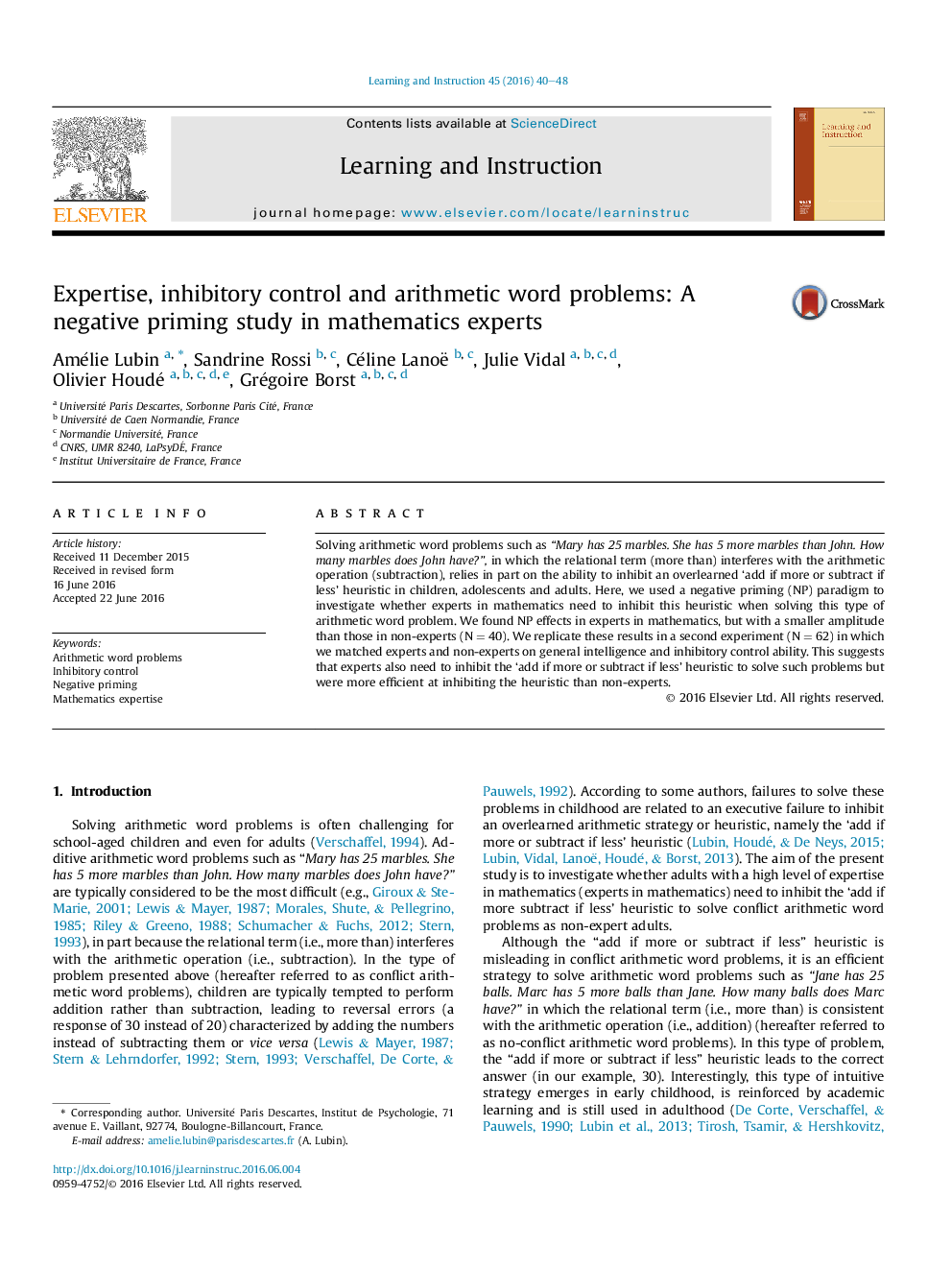| Article ID | Journal | Published Year | Pages | File Type |
|---|---|---|---|---|
| 365460 | Learning and Instruction | 2016 | 9 Pages |
•Solving conflict arithmetic word problems relies on the ability to inhibit a heuristic.•The heuristic is akin to an “add if more or subtract if less” strategy.•Experts in mathematics performed a negative priming paradigm.•Experts, as non-experts, are hampered by this heuristic.•Experts are more efficient at inhibiting this heuristic.
Solving arithmetic word problems such as “Mary has 25 marbles. She has 5 more marbles than John. How many marbles does John have?”, in which the relational term (more than) interferes with the arithmetic operation (subtraction), relies in part on the ability to inhibit an overlearned ‘add if more or subtract if less’ heuristic in children, adolescents and adults. Here, we used a negative priming (NP) paradigm to investigate whether experts in mathematics need to inhibit this heuristic when solving this type of arithmetic word problem. We found NP effects in experts in mathematics, but with a smaller amplitude than those in non-experts (N = 40). We replicate these results in a second experiment (N = 62) in which we matched experts and non-experts on general intelligence and inhibitory control ability. This suggests that experts also need to inhibit the ‘add if more or subtract if less’ heuristic to solve such problems but were more efficient at inhibiting the heuristic than non-experts.
